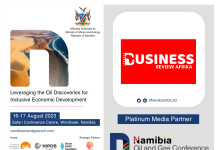Hopes have been reignited that a 40-year treaty signed 17 years ago for a Joint Development Zone (JDZ) between Nigeria, and Sao Tome & Principe, may become economically viable going by the level of renewed efforts by the countries.
Such efforts will lead to further review of the commercial viability of over 500 million barrels of crude oil reserves stranded in the region.Although most of the International Oil Companies (IOCs) that pushed for drilling rights in the region left at some point, are now showing interest in returning to the zone, according to top management staff Joint Development Authority (JDA), who craved anonymity.
The JDZ, an area in the region of the Nigeria – São Tomé and Príncipe boundary, considered to be rich in oil and gas reserves came into force in 2001, with a treaty to make both countries explore the resources in the zone without interfering with the maritime territory of each other. The Nigeria – São Tomé and Príncipe Joint Development Authority (JDA) is an organisation established by the treaty to regulate activities in the zone.Nigeria had sent a delegation to Sai Tome & Principe earlier in the year, to discuss among other issues, the need to strengthen the relationship.
The source told The Guardian that the level of interest shown by the two countries, which included a visit of the Prime Minister of Sai Tome and Principe to Nigeria recently, were indications of readiness to revive the partnership.Similarly, the source disclosed that the organisation has been restructured with new workforce, and have gathered new data on the viability of the oil deposits in the region.
This discovery, the source noted, could bring back Total, Chevron, Sinopec, Addax, ExxoMobil, who had pulled out of the zone on the claims that it is difficult to drill there, and that the oil has no commercial value after drilling some wells.
Furthermore, difficulties in exploring at the zone was not the only the reason that led to the pull-out of the oil majors, he said, adding that international politics as well as the oil market realities of the time created unfavourable situation for the investors. The source debunked allegations that the organisation was running on a budget of about $12 million despite not being productive for the past 17 years.
source:allAfrica

























